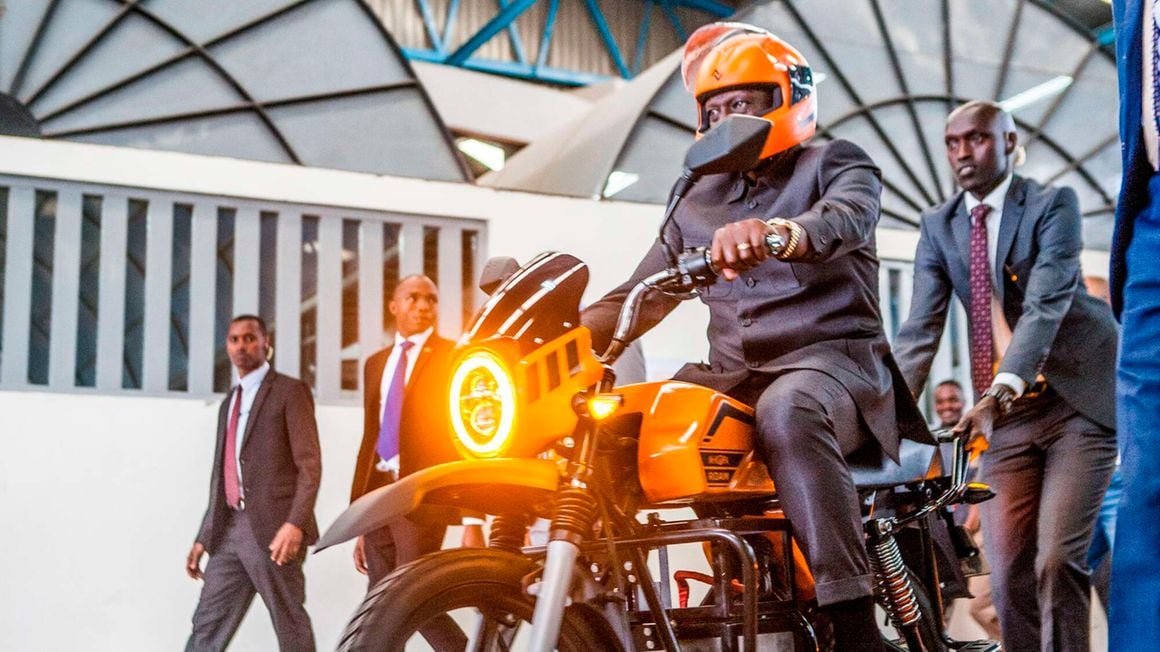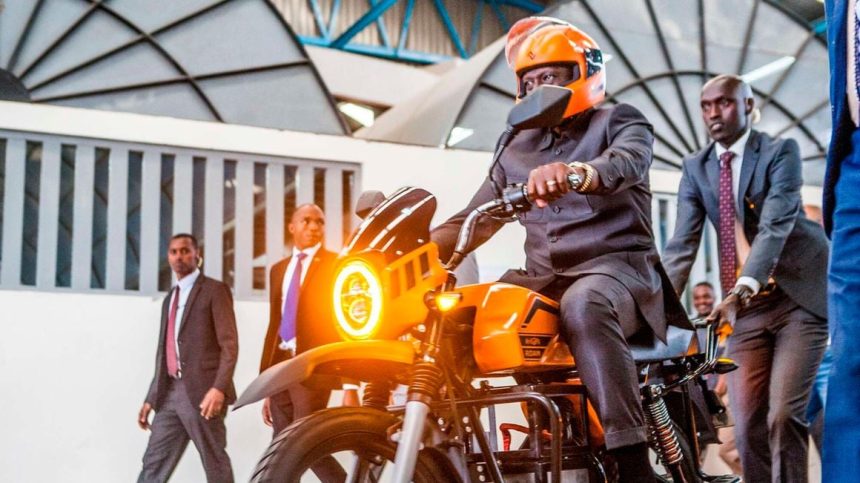President William Ruto officiated the opening of a 50,000-capacity electric motorcycle plant on Tuesday hosted in the country by a Swedish e-mobility firm Roam.
This is after the company expanded its e-mobility portfolio months after launching electric buses used for public transport in the country.
At the time of the launch, about 200 motorcycles had already been assembled, ready for the market.
The company so far has about three charging facilities in the country with a plan to expand to other areas.
“This facility showcases Kenya’s potential as a leader in clean transportation solutions in Africa. This initiative aligns perfectly with our national goals to reduce carbon emissions and promote clean energy alternatives,” the President said.
“The assembly plant will not only contribute to our environmental goals but also foster economic growth by creating job opportunities and nurturing local talent in the automotive industry.”
He explained that the government has cut five key taxable areas linked to electric bicycles so as to rubber-stamp the sustainability agenda.
He announced that there will be a reduction in the 16 percent value-added tax (VAT) on all electric bicycles. He also added that spare parts, battery and its parts alongside charging equipment will be exempted from VAT while a lower electricity tariff will be used at the charging stations.

The e-bikes by Roam target common road users to follow the President’s pronouncement of electrifying bodabodas in the country.
Filip Lövström, Roam’s chief executive, told the Business Daily that it costs about Sh300,000 to buy the motorcycle.
Dr Ruto said that the new venture should bring in revenue of about Sh400 million in the country.
Since most of the motorcycling parts are outsourced, the President announced that by the end of the year, the assembly should ensure that at least 14 parts are made locally in the country, with the hope of expanding to about 30 parts locally assembled.
Dr Ruto also said that the government projects that by the end of next year, the country will have about 200,000 electric bikes.
Lucy Mugala, Battery Engineering Manager at the company told the Business Daily that, unlike other companies, they do in-house design and assembly of the motorcycle brand.
She said that the battery lifespan is about 3 years and it could take up to five hours to fully charge the motorcycle.
Users can either charge their batteries at home or use the charging stations called the Roam hub which are currently available in Nairobi.
“It will take about 70 kilometres for a heavy-used case battery, some go up to 90 kilometres. Our company provides two battery packs. A battery may charge between 20 to 80 per cent in an hour,” explained Mugala.
Nairobi Governor Johnson Sakaja lauded the project that sits on a 10,000 kilometre-area as one that is on track to ensuring Nairobi becomes a net zero city in regards to reducing carbon emissions.
He urged the company to ensure that all constituencies in Nairobi have charging stations to avoid congestion at the three available stations.



